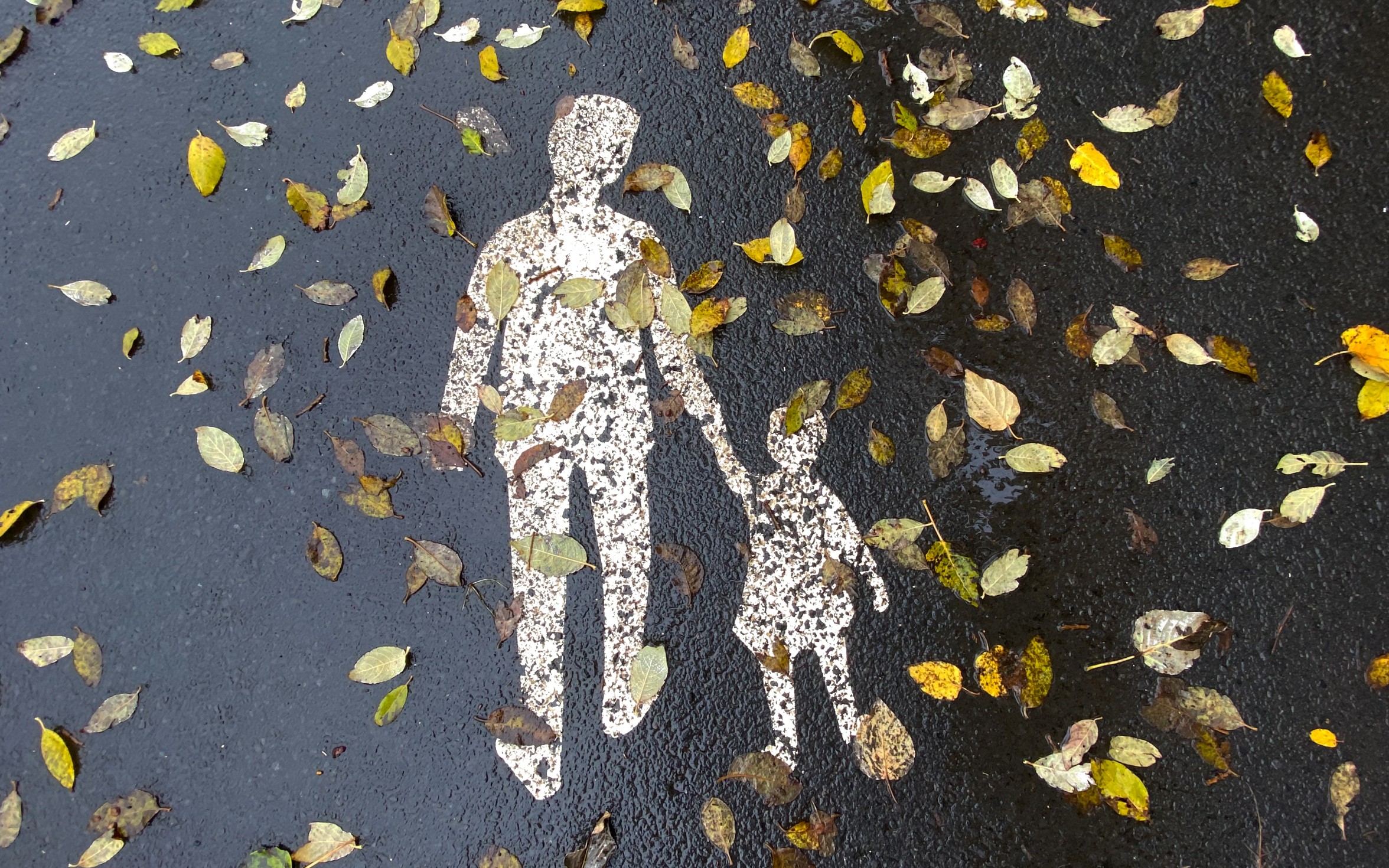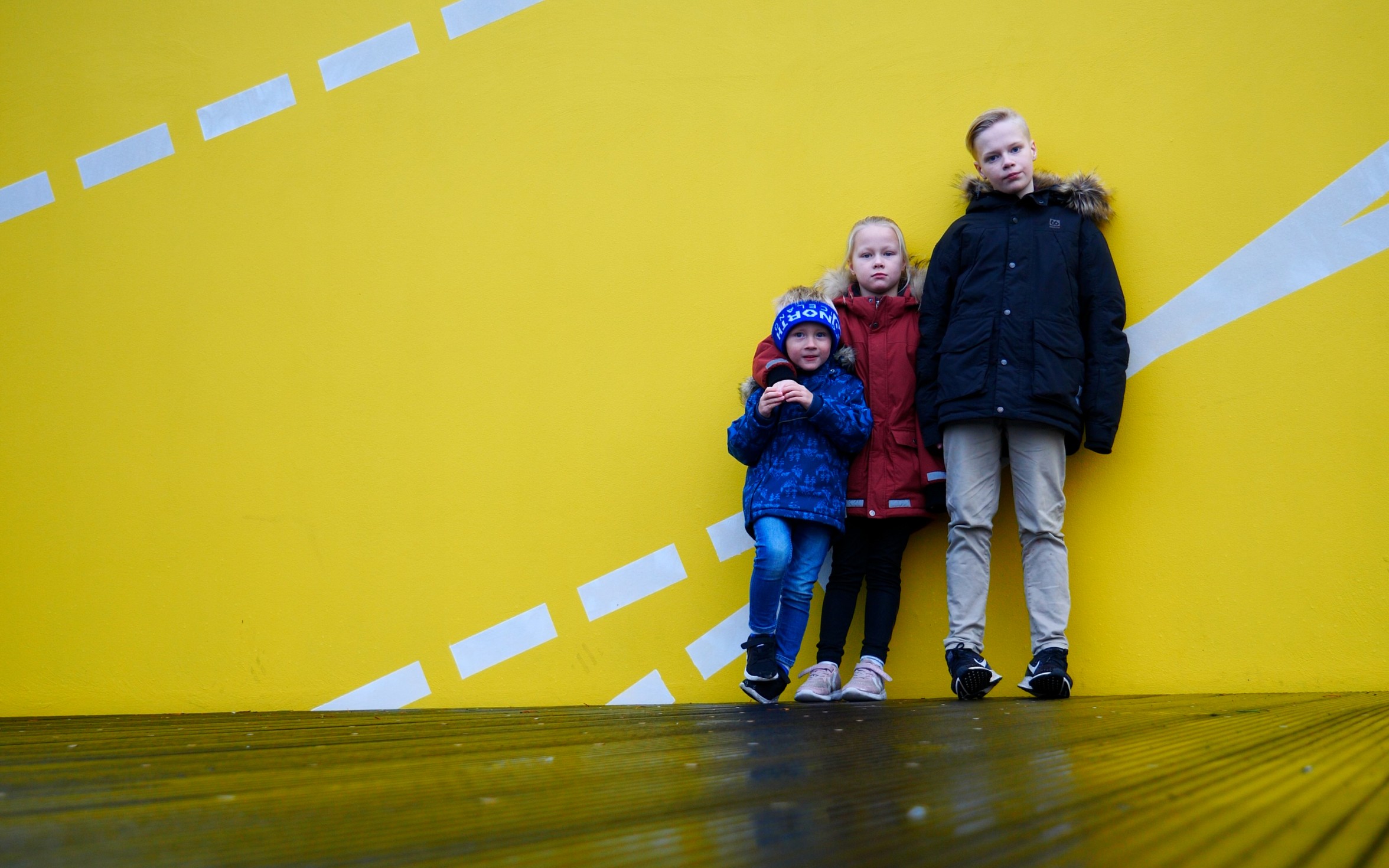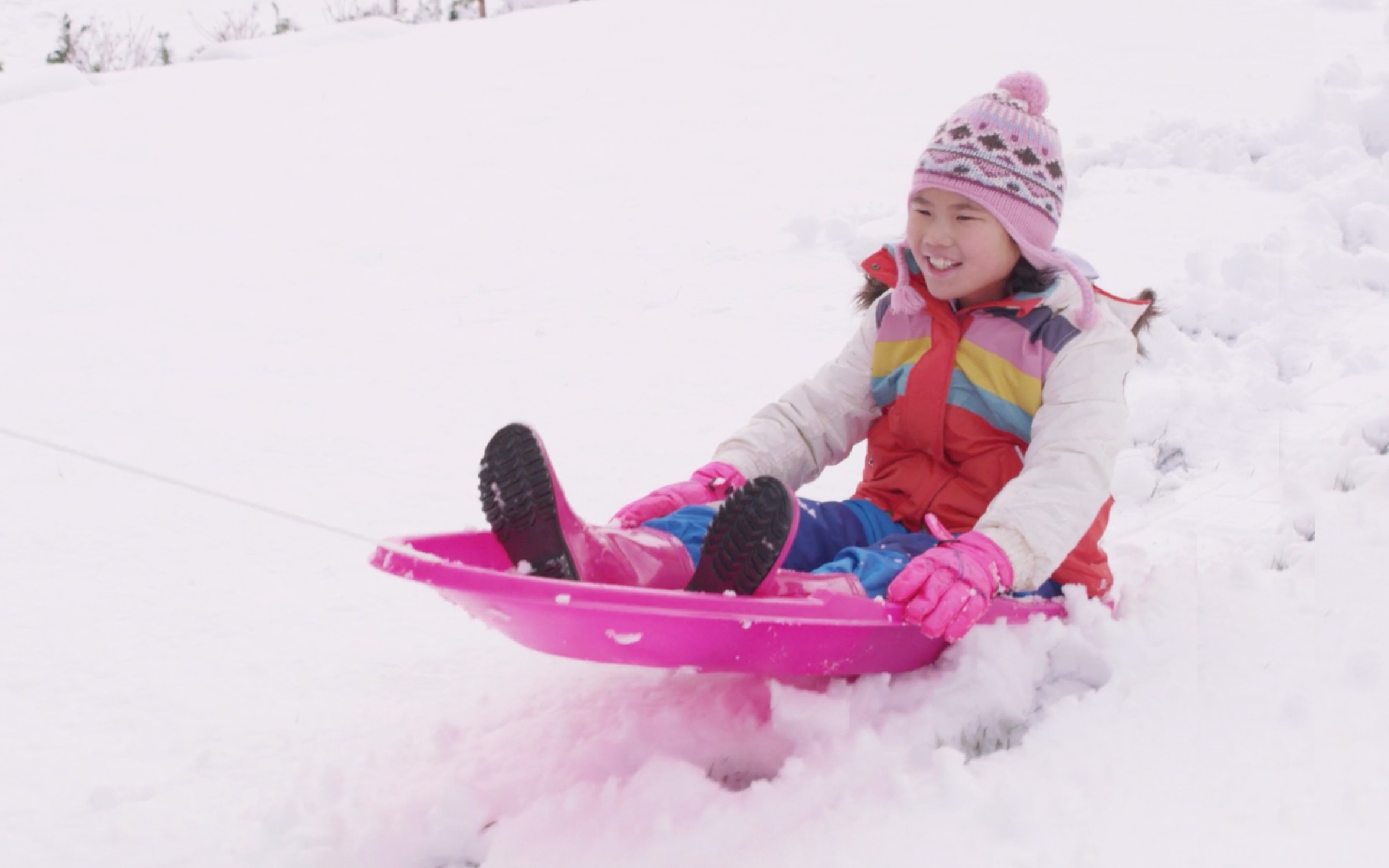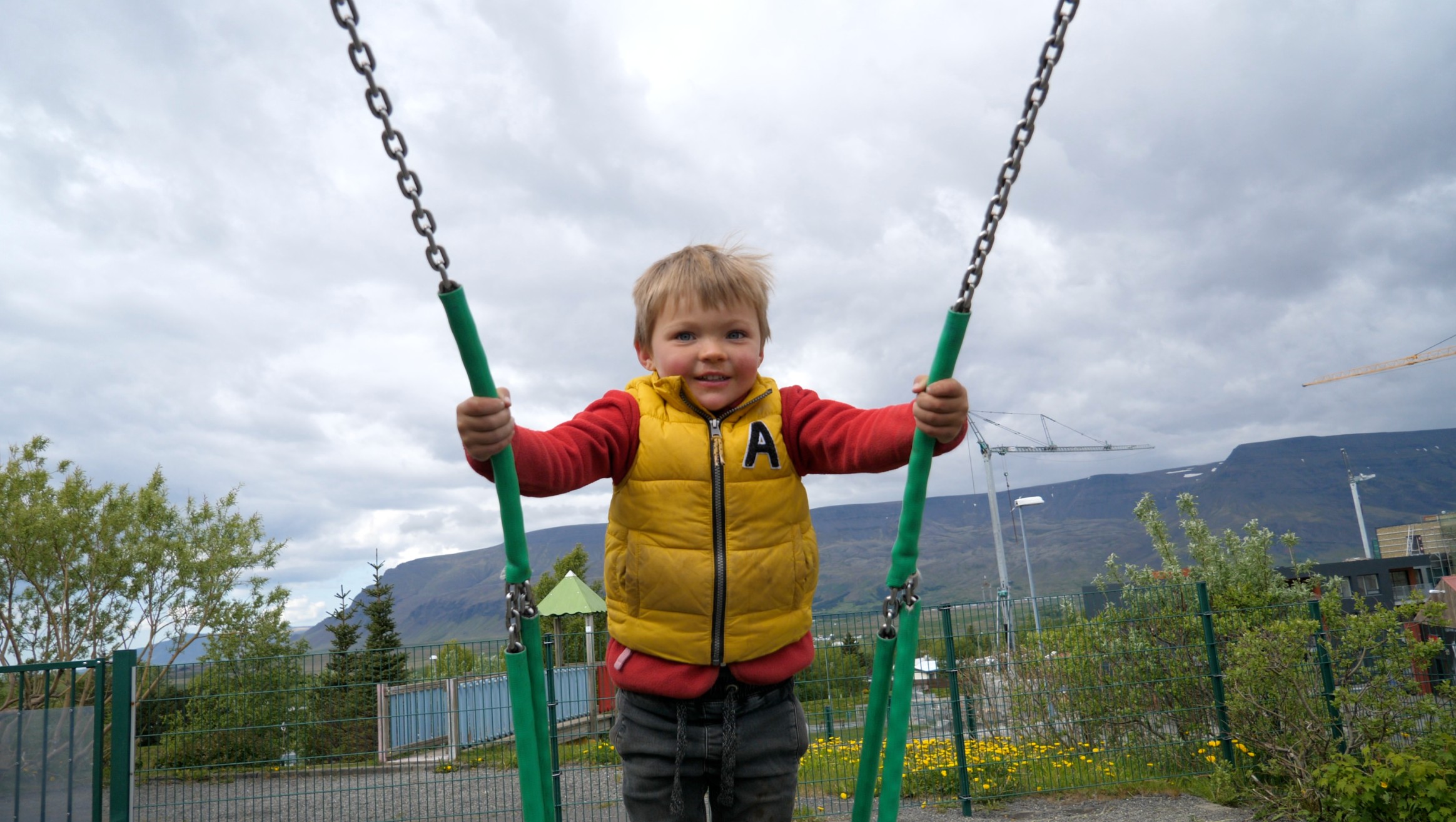Children & Families
Family and Household
- Most people in Iceland live with other family members or friends/roommates while others live alone.
- A home consists of people that live together and share costs, or individuals who live by themselves.
- The family forms are varied, e.g., a single parent with their children, couples with children from previous relationships, same-sex couples with children or people in a partnership.
- Pets are quite common in Iceland, particularly dogs and cats.
- The elderly live in their own home for as long as possible. Many get services from their municipality like cooked meals delivered, house cleaning and home nursing.
- Nursing homes are for seniors who need a lot of help and care.
- Around 4000 children are born in Iceland each year. The average age of women giving birth is 28 years.
- It is common for people to live together as a couple and have children before getting married.
- Family composition varies. Children often live alternately with their mother and father if the parents don't live together. Sometimes new partners and half-siblings are a part of the family.
- Same-sex couples can get married, adopt children and/or undergo fertility treatments.
- Single women also have the option of adopting a child and/or artificial insemination. www.island.is/ofrjosemi-og-taeknifrjovgun
- Surrogacy is prohibited in Iceland.
Housing
- In Iceland, people live in detached houses, semi-detached houses, apartment buildings or farmhouses.
- Most houses in Iceland are heated with hot water.
- The houses are sturdy and can withstand cold and earthquakes well.
- Most people live in their own housing, but the rental housing market is also big.
- Sometimes people will rent industrial buildings to live in but that can be dangerous and detrimental to your health.
- A high-risk situation could be created in a fire since fire safety measures for industrial buildings are not the same as for residential buildings.
- Such housing is referred to as unapproved housing and the authorities can shut it down.
Housing - Buying
- People buy apartments or houses through real estate agencies. Housing for sale is advertised in newspapers and online. Real estate agencies should protect the interests of both buyers and sellers and make sure that everything is done legally.
- It is possible to get a loan from a bank or pension funds. However, it is always necessary to have some capital yourself for the down-payment for the apartment.
- Buyers must take a close look themselves at what kind of housing loan they want to take. Loans are indexed or non-indexed, with varying interests and for varying lengths of time. www.aurbjorg.is
- A participation loan is a resource for those with less income and assets who are buying their first property. www.hlutdeildarlan.is
- Interest benefits are paid off housing loans. They are both income and assets based.
Housing - Leasing
- You can lease housing through individuals, leasing companies or municipalities.
- The Icelandic Student Services (Félagsstofnun stúdenta) at the University of Iceland and the University of Akureyri lease apartments to university students. www.studentagardar.is, www.festaha.is
- Individual's rights are better guaranteed by making a lease agreement. https://hms-web.cdn.prismic.io/hms-web/74f02966-f2ff-46ba-97eb-55768f5eff41_Husaleigusamningur_EN_12112020_FORM.pdf
- If a lease agreement is registered (at the Districts Commissioner's office), you can apply for housing benefits.
- Registration is the official registration of documents.
- Housing benefits are income-based. www.hms.is/husnaedisbaetur
- It is not possible to get housing benefits when leasing a single room or industrial housing. www.leigjendasamtokin.is
Housing - Primary Expenses
- If you own an apartment or a house, you must pay:
- Instalments of the housing loan.
- Real estate tax (housing tax to the municipality).
- Housing insurance (fire insurance and home contents insurance).
- Heat and electricity.
- Water and sewerage fees.
- Residents' association fund (if you live in an apartment building you pay mutual costs for the building).
- If you're leasing an apartment or a house, most expenses are usually included in the rent.
Housing - Cleaning, Damp, Moisture and Mold
- In Iceland, it's often warm inside houses and cold outside so moisture forms in windows, which can cause mold and damages. It is therefore important to dry moisture, open windows and ventilate daily, also in winter. Damp and mold damage housing.
- It is important to not pour water on floors and fixtures when cleaning. Flooring in Iceland is usually parquet and fixtures are made from wood panel. Too much water will destroy floors and fixtures. Lessees can be liable for this.
- Normal household cleaning includes wiping surfaces with a damp cloth, vacuuming floors and washing them with a damp mop that's been wrung out with hot (soapy) water. Sinks and sanitary fixtures are scrubbed with a sponge and the appropriate detergents.
- There are many detergents available and it's reasonable to choose environmentally friendly products.
Apartment Buildings – Communal Areas and Conduct
- A communal area is the mutual property of the residents in an apartment building.
- Communal areas are: Stairwell, bicycle storage and waste storage, parking lot (or parking garage) and garden. No additional items like furniture, appliances or tires should be stored in communal areas.
- Sometimes residents will take turns vacuuming the stairwell, changing the garbage bins and moving the lawn, but sometimes the residents' association fund will buy those services.
- Sorting garbage for recycling is important. Most buildings have recycling bins. It's usually sorted into paper, plastic, organic and other waste . Cans, glass and aluminum (food cans) should also be sorted and taken to the recycling skips in your district.
- All non-recyclable waste should be put into bags and closed tight before the garbage is thrown in the garbage bins/garbage shoots in the communal area.
Housing - Apartment Buildings
- Apartment buildings have residents' associations. The board of the residents' association (chairman and treasurer) is elected. All major decisions on developments in the building require the approval of the majority of residents in a meeting.
- It is important to know the rules of your apartment building. If you're not sure, just knock on a neighbor's door and ask - it's not a problem.
- Good conduct, consideration and collaboration between the residents is important in apartment buildings.





